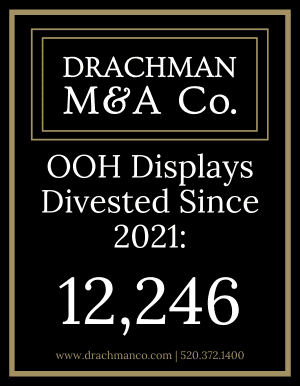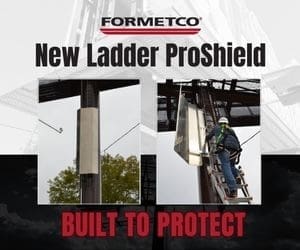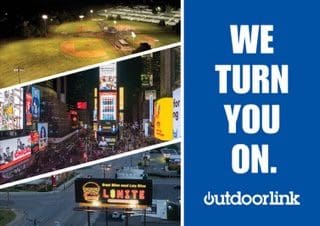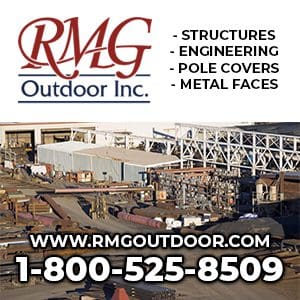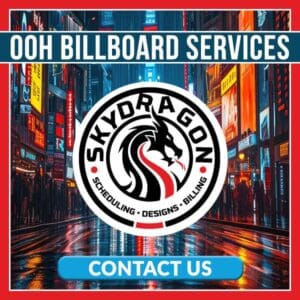
Sometimes you can fight city hall. Richard Rothfelder has written a case study about how Houston out of home companies successfully sued the city to recover $2.5 million in off-premise sign permit fees. Rothfelder’s firm presented the winning arguments for the out of home companies.
By Richard Rothfelder
City of Houston v. Harris County Outdoor Advert. Ass’n, 879 S.W.2d 322, 325 (Tex. App.—Houston [14th Dist.] 1994, writ denied).
Introduction
Harris County Outdoor Advertising Association and its individual members (“HCOAA”) sued the City of Houston (“the City”) when the City charged excessive operating fees for off-premise signs. The district court ruled that the fees were excessive and ruled in favor of HCOAA. The City appealed to the Texas Court of Appeals- Houston (14th District), which affirmed the judgment of the district court. The Court of Appeals found that the permit fees constituted an impermissible occupation tax and that HCOAA was entitled to damages in the amount of nearly $2,500,000.00.
Summary
- Between 1980 and 1989, the City enacted six ordinances that “significantly increased the fees for operating permits for off-premise signs and/or on-premise signs”, including City Ordinance No. 89-767 (“the Ordinance”) on May 24, 1989. The Ordinance doubled the fee for an off-premise operating permit. HCOAA brought suit alleging that “the City’s fees for those permits were so excessive and constituted an unauthorized and unlawful tax in violation of the Texas and U.S. Constitutions.” HCOAA continued to pay under protest. The average permit fee paid from January 1985 to July 27, 1992 was $120.44 and the number of permits purchased by HCOAA during this time was 17,442.
- On August 26, 1992, the trial court rule in favor of HCOAA. The court found that the fees for off-premise operating permits were “unreasonably high” and “unconstitutionally excessive.” The court explained that $40.00 was a “reasonable and constitutional” fee. To calculate the damages owed to HCOAA, the court subtracted $40.00 from $120.44 and multiplied that number by 17,442. The court also awarded attorney’s fees, court costs, interest, and a return of the amount HCOAA deposited into the court registry- making the total amount owed to HCOAA nearly $2,500,000.00. The City appealed.
- The Court of Appeals upheld the trial court’s ruling. The court explained that Article VIII, Section 1(f) of the Texas Constitution “prohibits a municipality from levying an occupation tax where no such tax has been previously levied by the State.” Because the State of Texas had not levied an occupation tax on the off-premise sign industry, if the fees for operating permits constituted an occupation tax (as opposed to a valid license fee), then the City violated the Texas Constitution.
- The court explained that the test to determine whether the exaction was an occupation tax or a license fee is “whether the primary purpose of the exaction, when the statute or ordinance is considered as a whole, is for regulation or for raising revenue…If the primary purpose of the exaction is for regulation, then it is a license fee; however, if the primary purpose of the exaction is to raise revenue, then it is an occupation tax, regardless of the name by which it was designated.”
- Statutes or ordinances imposing license fees are presumed to be reasonable and to declare one void the record must show the unreasonable and oppressive nature of the exaction. A license fee is considered to be unreasonable if it is excessive or is “more than reasonably necessary to cover the cost of granting the license and of exercising proper police regulation.” Additionally, the license fee “must bear some reasonable relationship to the legitimate object of the licensing ordinance.” Factors that the court considers include the “nature of the business sought to be controlled and the necessity and character of the police regulation.”
- The City argued that a study conducted by the accounting firm Deloitte, Haskins and Sells demonstrated their need to increase the fees for off-premise signs. However, the court found HCOAA’s expert witness more compelling when he presented testimony that the fees were unreasonably high or excessive and had no relation to the cost of services. He supported this conclusion with testimony that the City improperly allocated costs and was inefficient, wasteful, and mismanaged their money.
- The City further argued that “any assessment under the guise of a license fee, no matter how prohibitive or tenuously connected to regulation, is reasonable as long as it relates to regulation.” The court rejected this argument and said that if it was to accept that position, “any review of whether the assessment is in fact reasonably necessary to cover the cost of regulation would be prohibited.”
- The court agreed with HCOAA that “there was no direct relationship between the payment of fees for off-premise operating permits and the receipt of services” and that “the revenue generated by the City’s fees for off-premise operating permits exceeded the reasonable cost of regulation and that such fees constituted an impermissible occupation tax.” The City’s arguments were overruled and the trial court’s ruling was upheld.
Takeaways
If a city’s ordinances dramatically raise permit fees, a court may find that the permit fees constitute an impermissible occupation tax. However, exercise caution if you decide to protest the raises. Determining whether an exaction is a valid license fee or an unconstitutional occupation tax is a highly fact specific issue. If you seek to challenge a city’s permit fees, be sure to carefully record all costs and to thoroughly investigate the city’s policies. Hiring an accountant to review the city’s finances and management could be beneficial.
Click Here to read the appellate decision.
[wpforms id=”9787″]
Paid Advertisement
